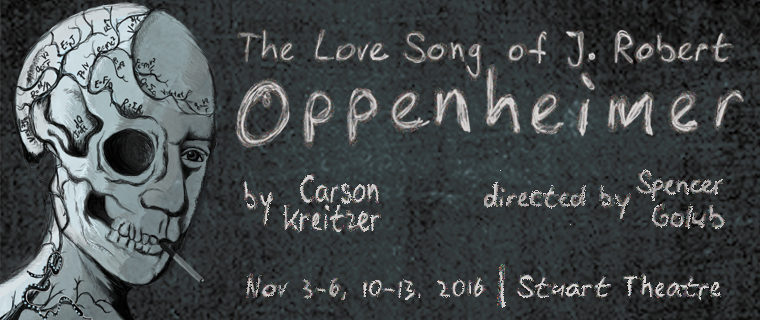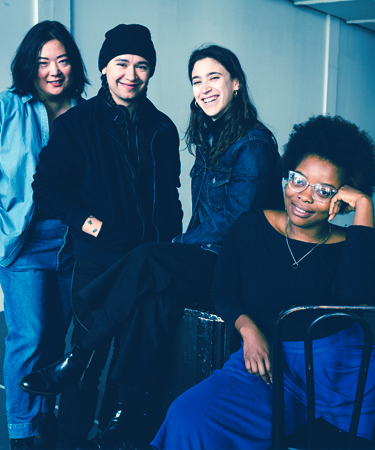November 3–13, 2016
Stuart Theatre
Written by Carson Kreitzer. Directed by Spencer Golub.
The Love Song of J. Robert Oppenheimer by Carson Kreitzer explores the life of one of the greatest American scientific minds of the twentieth century. J. Robert Oppenheimer, the lead scientist in the quest to unlock the secrets of atomic energy in the 1940s, spent the latter part of his life trying to make sense of the impact of his research. Under his direction, a number of the greatest physicists of the day, some Jewish and exiled, where secluded in the American South West and given unprecedented resources to pursue their research. From their work emerged one of the most terrible weapons the world has ever seen—the atomic bomb. Speaking about his work on the project, Oppenheimer famously quoted from the Bhagavad Gita, “Now I am become Death, the destroyer of worlds.” What happens when the pragmatic forces of the military co-opt unshackled scientific freedom?
The play weaves together ideas of freedom, religion, war, and love to question how we should understand the purpose of scientific endeavor. A group of diverse thinkers, unknown to the public and working in secrecy, find themselves swept up in the military response to Hitler’s rise in Europe. These cultural outsiders know they are building a new weapon intended to defeat Hitler but, upon completion of the project, are shocked at the power of their invention. As the military moves ahead with the results of their labor, they realize they have become a part of the military machine. For Oppenheimer, the understanding of what he has wrought will haunt him for the rest of his life. As he becomes the poster child for the new atomic age, how does he find peace from his conscience, and what effect will his journey have on the people around him?
This year’s performance season grew out of ongoing conversations on campus at Brown University about issues of diversity and inclusion. Sock & Buskin, the student-faculty board that selects the Brown University Theatre season, wanted to represent this conversation through their choice of plays, writers, directors, and casting. The season aims to reflect the strengths and the challenges that students face in making contemporary performances that embrace diversity and can effect social change. This play continues the season’s investigation into the layers of history and meaning that inform our understanding of diversity in the current moment. How can we understand shifting cultural constructions of the religious outsider through the lens of Jewish identity in the mid-Twentieth century? And how do we match the need for intellectual diversity with the demands of the immediate present?



